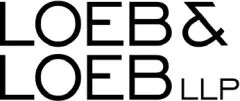- within Intellectual Property topic(s)
- in United States
- within Intellectual Property topic(s)
- with Finance and Tax Executives
- in United States
- with readers working within the Telecomms and Law Firm industries
District court denies rapper 50 Cent's motion to preliminarily enjoin release of horror film Skill House, holding plaintiff failed to show likelihood of success, or even serious questions, on merits of his right of publicity and trademark claims, where record suggested that he had consented to use of his name and image in connection with film.
Plaintiff Curtis Jackson, the famous rapper, actor and producer known as 50 Cent, along with NYC Vibe LLC, through which he holds various trademarks, sued Ryan Kavanaugh, Skill House Movie LLC and GenTV alleging misappropriation of Jackson's intellectual property and likeness in connection with Skill House, an influencer-driven horror film that included scenes featuring Jackson. Jackson's suit, which included causes of action for trademark infringement, false advertising, violations of Jackson's right of publicity and unfair competition, claimed that despite there being no final agreement for him to appear in the film, defendants used his likeness and trademarks to promote, market and sell Skill House.
More than a month after he filed his complaint, Jackson moved for a preliminary injunction, seeking to stop the public release of Skill House and any further use of Jackson's likeness in connection with promoting the film. While Jackson acknowledged that he had filmed scenes for Skill House in 2022 and that there had been discussions about a deal for him to appear in film, he contended that no final agreement had been reached and, therefore, the use of his trademarks and likeness in the film were unauthorized. Jackson asserted that he was entitled to a statutory presumption of irreparable harm and that, regardless, his loss of control over and risk to his reputation and goodwill constituted irreparable harm, the balancing of the interests weighed in his favor, and the public has an interest in "know[ing] a true endorsement by Jackson from a false one."
Defendants opposed Jackson's requested injunction, primarily arguing that Jackson was not likely to succeed on the merits of his claims. Defendants presented evidence that Jackson had, in fact, executed an agreement to appear in the film—although they could not produce a signed copy—and that even if Jackson had not signed the agreement, he and his team demonstrated their assent to the agreement, including by approving promotions for the film.
The court denied Jackson's motion in a minute order dated July 3, 2025, and later elaborated on its ruling in a written order. The court initially explained that the competing evidence as to whether Jackson had signed the agreement in question could alone justify the denial of Jackson's motion. The court then went on to find that the parties had evidenced an intent to be bound by agreed-on terms and that their conduct further suggested there had been a meeting of the minds. As the court detailed, not only had Jackson's attorney circulated agreed-on terms, but Jackson then filmed scenes and promotional content for the film and helped promote it, with his publicist approving proposed media coverage as contemplated by the parties' agreement. Ultimately, the court held that the record "suggest[ed] that Jackson consented to the use of his name and image in connection with the film" and, accordingly, Jackson failed to show a likelihood of success (or serious questions) on the merits of his claims.
The content of this article is intended to provide a general guide to the subject matter. Specialist advice should be sought about your specific circumstances.



